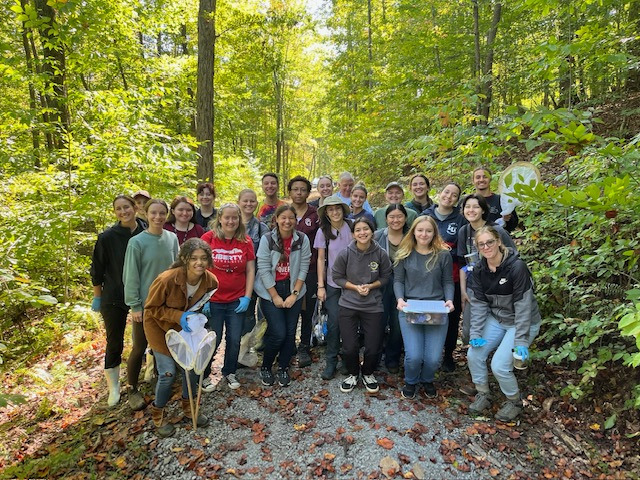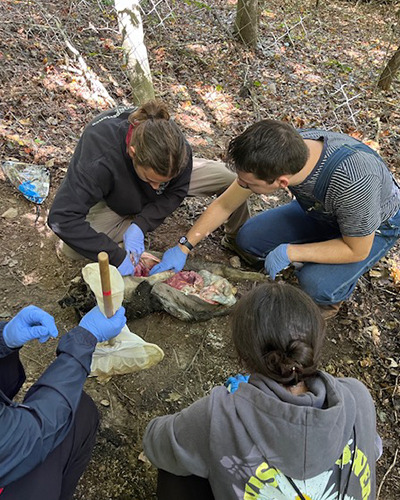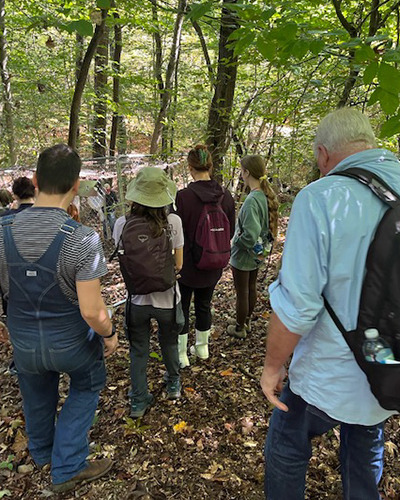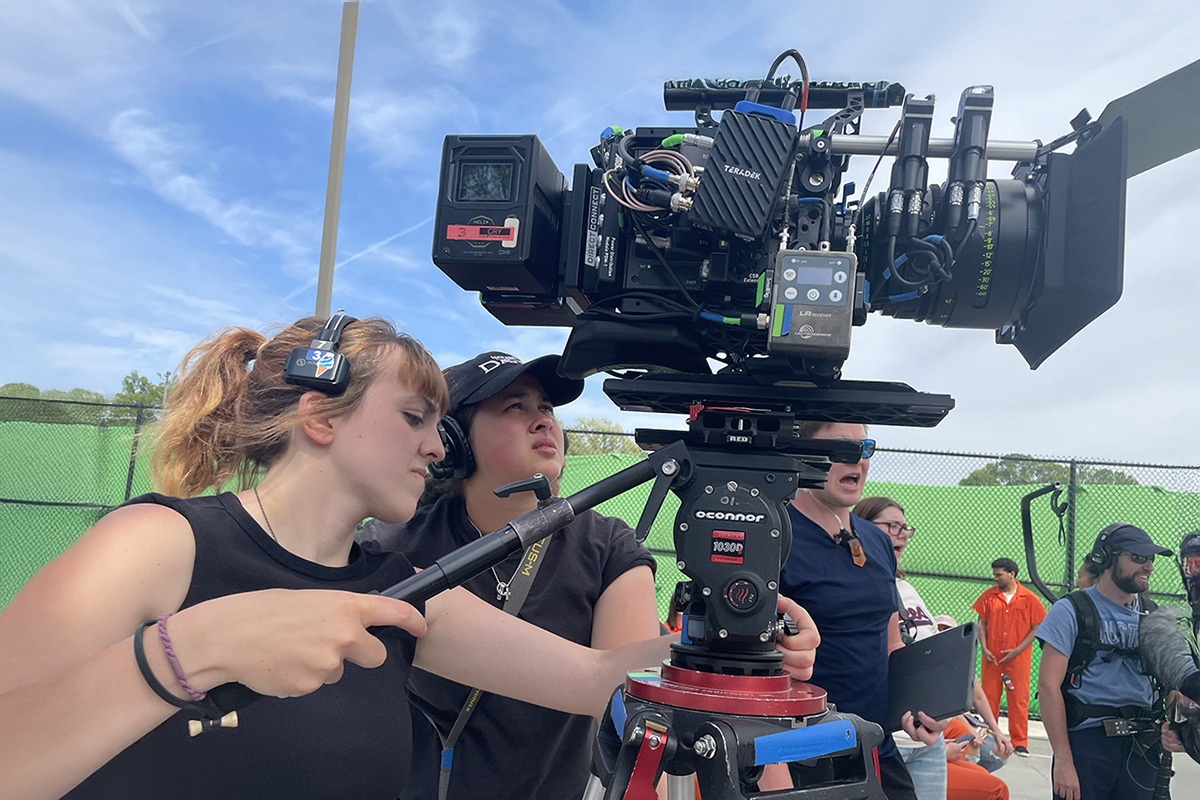Search News Archives
Filter News Articles
Additional Navigation
Outdoor simulation gives students hands-on experience in crime scene investigation
October 19, 2023 : By - Office of Communications & Public Engagement

A group of over 30 Liberty University forensic science students didn’t quite know what to expect when they embarked on a class exercise and ventured off the paved trail on Liberty Mountain, but their noses sensed that the scene before them contained the remnants of something dead — and evidence of staged criminal activity.
The “death scene” forensic exercise, held every fall, is organized and led by Professor of Biology and Director of Forensic Science Dr. Thomas McClintock. The event aims to provide students with hands-on learning opportunities outside of the classroom through the study and dissection of an insect-infested pig cadaver. The insects represent case-study evidence and the pig cadaver, placed in a large wire cage, was a stand-in for a victim of a criminal event.
Students in BIOL 421 Forensic Entomology and BIOL 320 General Entomology, taught by McClintock and Dr. Morgan Roth, arrived at the Center for Natural Sciences at 10 a.m. on Oct. 7 and boarded a bus to Liberty’s Hydaway Outdoor Center. From there, they took a short hike to the “death scene” prepared in advance by McClintock. Covered in bug spray and equipped with gloves, the students used their classroom knowledge to engage in a simulated crime scene that mimicked an environment they could come across in their chosen field.

“The joy that I get, initially, is from watching their faces as they approach the scene, because they have no idea what to expect, but an hour later they’re up to their elbows in maggots,” McClintock said.
Student objectives included properly handling evidence, surveying a scene, collecting and preserving data samples, analyzing the age and species of insects, and filing lab reports on their findings. Applying their understanding of forensic entomology, the scientific study of insect colonization on decomposing bodies, students ultimately worked to determine the pig’s time of death.
Using a variety of tools such as nets, small brushes, and “kill jars” that contain ethyl acetate, which kill the insects placed inside, students observed and photographed the scene, collected insects off the pig, and dissected the cadaver.
Over the course of the next few weeks, students will be graded on the exercise as they continue to monitor their samples, analyze data, and conduct their “death scene reports.” McClintock hopes that the successful and well-received exercise will lead to more hands-on learning experiences for students in the future.
 “I would definitely do the death scene event again,” said Junior Audrey Richards. “I feel like this has prepared me for working in the field, and it also gave me a chance to see if this is something I could see myself doing. The event was a confirmation for me that I am studying something I enjoy.”
“I would definitely do the death scene event again,” said Junior Audrey Richards. “I feel like this has prepared me for working in the field, and it also gave me a chance to see if this is something I could see myself doing. The event was a confirmation for me that I am studying something I enjoy.”
Students will get another chance to study CSI this spring during the annual Pig on the Mountain crime scene investigation exercise, an all-day event that gives participants the opportunity to gain real-life experience through different crime scene simulations. The exercise is hosted by Liberty University Helms School of Government in partnership with several Virginia law enforcement agencies.
Liberty offers a Bachelor of Science in Forensic Science that combines the disciplines of biology, chemistry, and criminal justice to further careers as an evidence technician, criminal investigator, DNA analyst, or forensic scientist.


